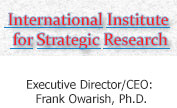Introduction
My brother Sam and I had a very interesting discussion about the use of our brain which may depend on the nature of the work we have to do. There is no doubt that faculty members have great opportunity to make use of their brain. Even then our conclusion is that in each activity there are elements of routine such as repetitive tasks during which we are so to speak on auto control; on the other hand, new situation forces us to be in the find mode and there is an opportunity to be creative. Even then we probably make sixty to seventy percent use of our brain. When we do research we go several notches higher. When we attend a workshop and do brainstorming we go higher. Here is an interesting experience:
47 ways to boost brain power
http://greatist.com/happiness/47-ways-boost-brainpower-now
Multitasking and priority setting
Practically, all jobs require us to do several things albeit do multitasking, in other words, engage in several sets of activities which can be undertaken concurrently. Obviously some juggling is needed, handling several balls making sure not to drop any ball which would be a disaster. On the other hands, there are tasks where we could set priorities based on urgency and criticality.
The following study helps us think through multitasking, in the light of which to become more realistic about what multitasking can do and perhaps to concentrate more on priority setting may be even more important.
https://www.verywellmind.com/multitasking-2795003
On the other hand, with careful strategies, multitasking can work:
https://fairygodboss.com/articles/multitasking-at-work
In light of the foregoing considerations, priority setting may be even more important.
Four methods:
Priority setting exercise:
https://www.cdc.gov/nphpsp/documents/Priority%20Setting%20Exercise2-Criteria.pdf
(note: those are the tools which will put you ahead of the ‘game’ and keep you ahead always)
Be adequately informed by relevant info outside and inside a particular organization; not to be swamped by info overload in the age of too much info; scan quickly and determine relevancies to concentrate on
Lateral thinking (get involved in mental gymnastics albeit mental weight lifting):
A good friend and colleague invited Prof. Ed de Bono to the UN. We had very interesting conversation and organized workshops for our colleagues. Great way to increase creativity.
http://www.debonothinkingsystems.com/tools/lateral.htm
Enlightenment (build up your reasoning power; use the scientific approach)
https://www.history.com/topics/british-history/enlightenment
Enlightenment Now (even more important in the 21st century)
https://www.gatesnotes.com/media/features/books/EnlightmentNowPDFExcerpt4.pdf
Strategic thinking
Strategic planning (how to be ahead of the ‘game’)
https://siteresources.worldbank.org/INTAFRREGTOPTEIA/Resources/mosaica_10_steps.pdf
http://leadstrat.com/wp-content/uploads/2015/10/4-components-of-strategic-planning-ebook.pdf
Mixed scanning model (Amitai Etzioni)
Emotional intelligence
Why Emotional Intelligence Matters | Santander Business First (santanderbank.com)
Traits of great business leaders
